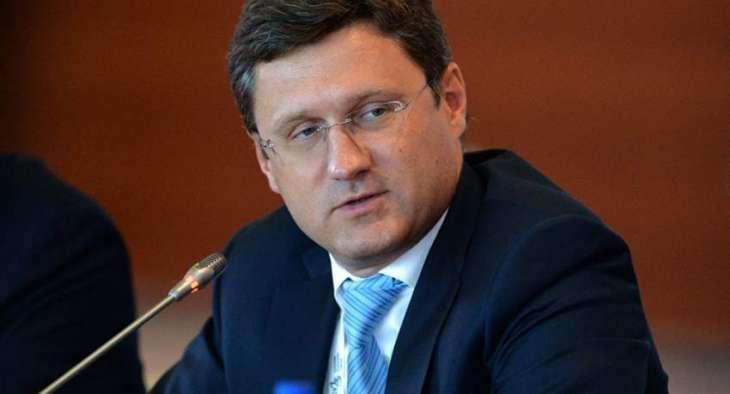Russia proceeded from its interests when deciding on whether to participate in the OPEC+ oil production cuts deal, and the agreement was not a "painful setback" for the country, as media have claimed, Russian Energy Minister Alexander Novak said in an interview with the Gazeta.Ru news outlet on Wednesday
MOSCOW (Pakistan Point News / Sputnik - 29th April, 2020) Russia proceeded from its interests when deciding on whether to participate in the OPEC+ oil production cuts deal, and the agreement was not a "painful setback" for the country, as media have claimed, Russian Energy Minister Alexander Novak said in an interview with the Gazeta.Ru news outlet on Wednesday.
In mid-April, Bloomberg reported that Russian President Vladimir Putin had to make "stinging concessions" by committing to the fresh oil output cuts deal with other oil producers in order to put an end to the collapse of oil prices, exacerbated by the COVID-19 pandemic.
"I do not agree with [the reports]. We proceeded primarily from the interests of Russia, weighed all pros and cons. Given that the current situation is really extraordinary, we all agreed on a proportional reduction in production ... The deal considers the production of 11 million barrels [per day] as potential output and we counted the reduction from it. And our actual production in February was at the level of 10.5 million. Therefore, I do not understand on what concession Bloomberg reports," Novak said.
The minister also said that he did not consider the fall in oil prices in March after the collapse of the OPEC + deal as an oil price war. It was a usual situation in the market caused by oversupply, Novak added.
Amid a significant drop in oil prices, on April 12, OPEC+ oil producers finally reached a new agreement to collectively reduce production by 9.7 million barrels per day for two months, starting on May 1. The restrictions will be gradually relaxed until the agreement expires in 2020.




